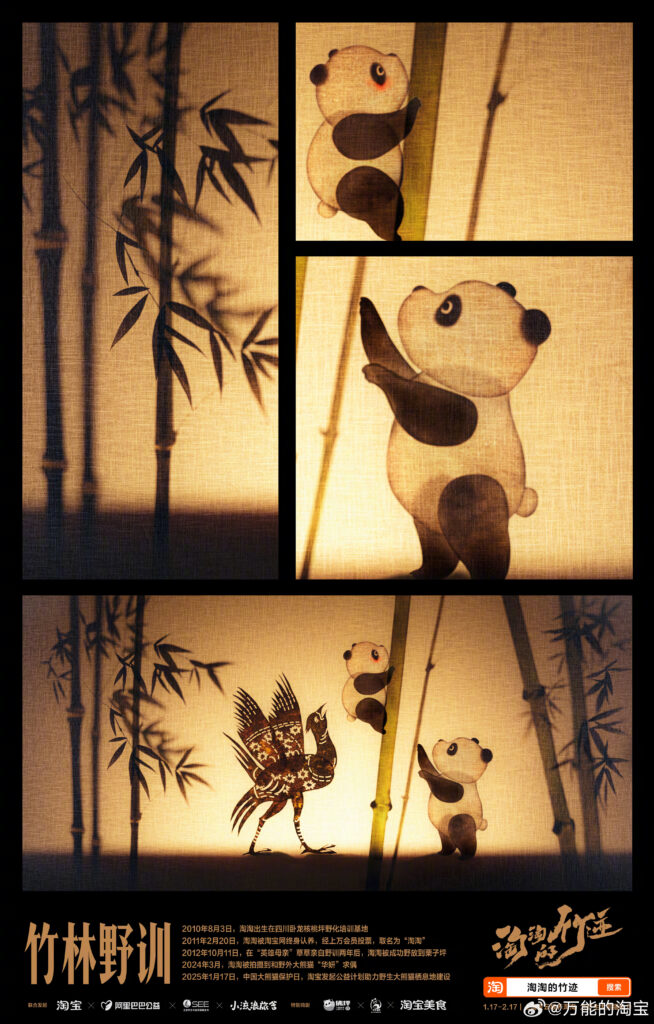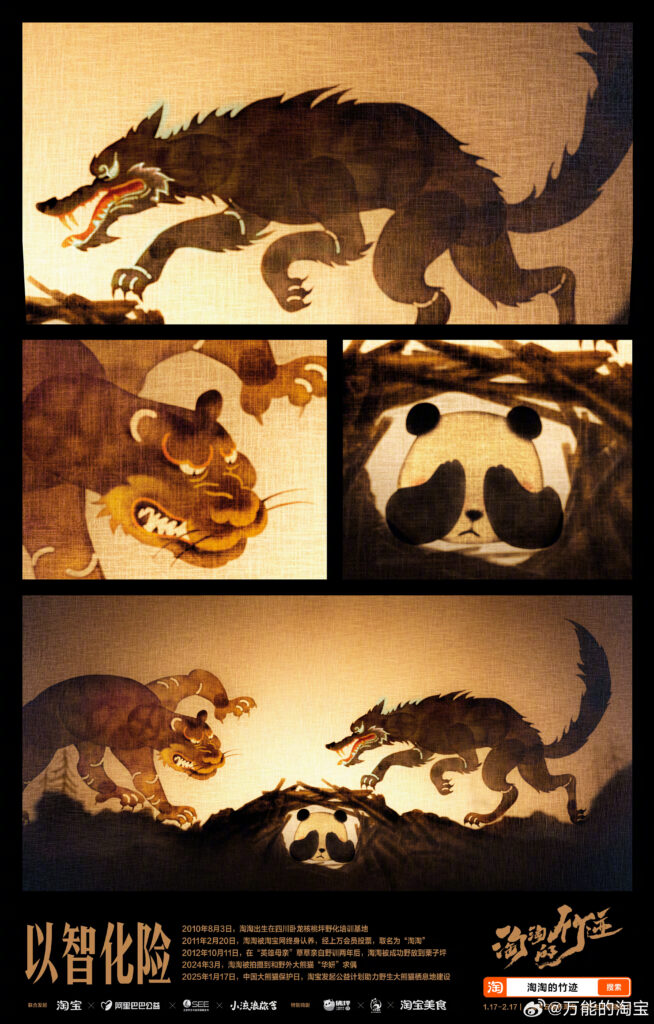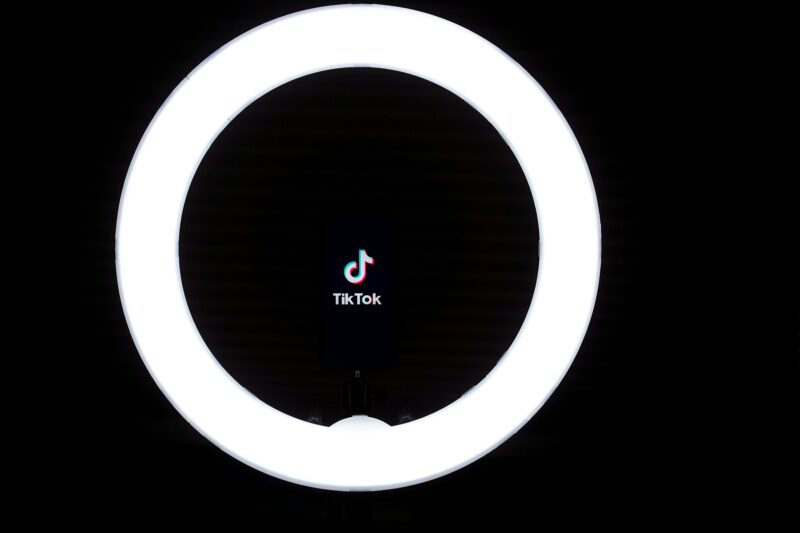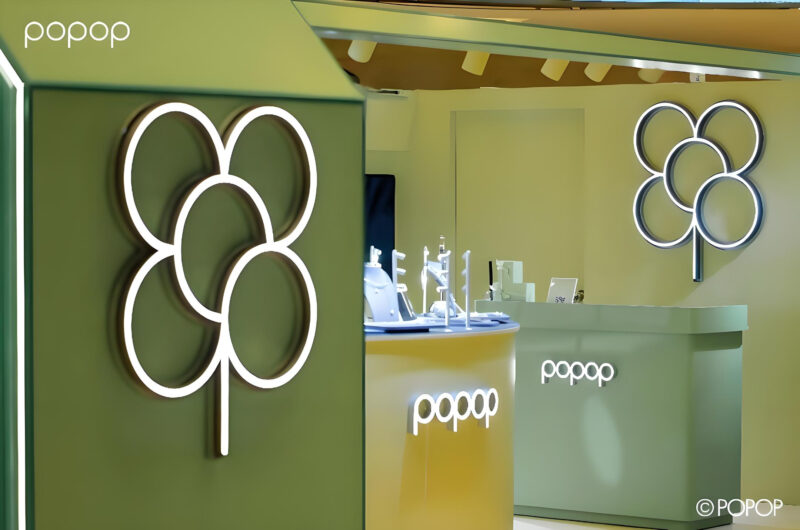17 January was National Panda Protection Day in China. On this day, Taobao, along with Alibaba’s charitable branch, released a video animated in traditional shadow play style to tell the story of one particular Panda, Taotao, named after the platform.
The story of Taotao is about it being released into the wild at 2 years of age and learning to survive in the harsh conditions of the Sichuan mountains before finding love and building his family. Indeed, Taotao is the first panda to have successfully had grandchildren after being released into the wild. The video, is accompanied by a voiceover narration in a traditional singsong tone, reenacting key moments of Taotao’s life, including his lessons with his mother, being released into the wild and finding food in the snow etc.
The campaign also involves partners such as the SEE Foundation, Foping Panda Natural Reserve and merchants for a charitable sales event to raise 1 million RMB (136,718.48 USD) for the protection of wild pandas, of which Taotao is one of over 1,900. At the same time, a gamified experience is available for Taobao users to play along with Taotao’s stories.



Back in September last year, Taobao announced that it had “adopted”, or sponsored Taotao the panda in 2011. It had been successfully mating after being raised in the wild for the past 12 years (13 years now). From the adoption came a project called IPANDA, and the name Taotao was also voted by 10s of thousands of Taobao users in 2011.
This CRM campaign, 14 years in the making, really hones in on the “emotional value” of such campaigns. Pandas are a great subject for not only its adorableness but also the national pride Chinese consumers have for the China-exclusive mammal. By incorporating shadow play, which is an intangible cultural heritage (ICH), it is also an example of ICH marketing. In fact, the nostalgia of 2010 and the early days of Taobao also provide an angle for emotional value. It is evidenced by the fact that the topic “Taotao’s steps in bamboo” (#淘淘的竹迹#, which is a play on words between “足” in “足迹”, footsteps, sounding similar to “竹” meaning bamboo) earned 210 million views on Weibo, China’s Twitter equivalent.









